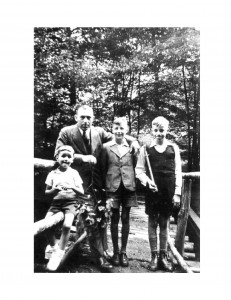I had an interesting conversation with an English literature professor last weekend. He’s German and felt that my novel “From the Ashes†would be of great interest in Germany as there appears to be a re-awakening interest in WWII, in particular a focus on the children and civilians who lived through this decade of suffering. Hitler’s villainous Nazi Germany has been well documented and reported. Schools and memorials ensure that young generations of Germans know everything about the Holocaust, the atrocities, the battles, the millions murdered and the well-deserved defeat of the Third Reich. Not much has been written about the children and last survivors of this time who are now dying off. The realization about this lack of information is creating new urgency and classes and historians rush to capture the forgotten stories of the old men and women who went through hell instead of childhood.

The professor noted that German editors and the public may be interested in my story since it provides detailed insight into the psyche of a handful adolescents with the added advantage that their experience is – for the most part – true. But that, I argued, would require a German translation. Anyone that has ever attempted to translate a language knows how difficult true translation is, to catch the nuances of the language which – translated from English to German – requires everything but a word-for-word translation.
German and English grammar and syntax are different and many English words don’t exist in German and vise versa. Worse, poetic voice cannot be translated and needs to be created from scratch like an original German language recipe. We both agreed that in order to do the story justice I’d have to completely rewrite the novel in German. I had attempted translating the prologue and gave up after deciding that it sounded wooden and not at all like the narrative voice it carries in English and that I want to portray.
My dilemma is that my written German, the command of a full range of verbs, nouns and the intricacies of poetic language has rusted with each year I’ve spent away from it. I am convinced that bilingual people have a stronger and wider command of a language since their brains are trained in distinguishing between languages, knowing many sets, synonyms and like walking dictionaries have a wonderful range of expression. To date I can switch languages back and forth on a dime without issue. However, in order to recapture the depth and breadth of good literary work I’d want to spend a few months in Germany and so to speak oil the squeaky wheels of German. I have no doubt I can do it but I’d need to justify this extended stay.
Why this urgency you may ask? Why not simply wait until I finish my current novel, market it and hope that an agent will pick it up later? The urgency, I admit, is highly personal. Not for me, but for my father, Guenter. He is one of the two protagonists of my story and overcomes much hardship – most of it based on true events – to survive and find his rescue in meeting the girl who will not only set him straight but who to him represents the integrity and goodness of heart that the war years took from him and that he thought no longer existed.
You see, Guenter is 82 years old and though still an avid reader, doesn’t know English. If I want him to see his story, because it is truly his story, I must provide him with a German translation. And I worry that I may run out of time to make this happen. What do you think?

Good for you.